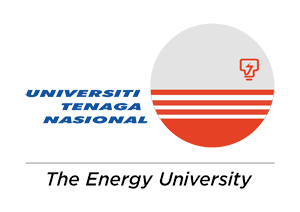The 5th International Sustainable Energy Summit (ISES 2022) Deep-dive Workshop 8: Youth Empowerment: Safe for the Future
Published on Thursday, September 1, 2022On August 30th, 2022, Universiti Tenaga Nasional (UNITEN), via the Institute of Energy Policy and Research (IEPRe) conducted the Deep-dive Workshop 8 (DDW8), Youth Empowerment: Save For the Future as part of the 5th International Sustainable Energy Summit (ISES 2022) held at the Kuala Lumpur Convention Centre. The summit themed "Empowering Energy Transition” was organised by the Sustainable Energy Development Authority (SEDA) Malaysia, and hosted by the Ministry of Energy and Natural Resources (KeTSA). The forum-style workshop featured the Adjunct Professor of UNITEN and the Executive Director of the Malaysian Institute of Economic Research (MIER), Dr. Hezri Adnan as the Session Chair. Dr. Hezri initiated the workshop by highlighting energy transition goals, opportunities, and challenges for our youth. He reiterated that collective action is required to accelerate the energy transition, before welcoming each panelist on stage to deliver their speeches.
The first panellist, Mr. Eqram Mustaqeem Muhamad, a Capacity Building Member of the Malaysian Youth Delegation for Climate Change emphasized the impact of climate change on youth. He claimed that youth participation is crucial to mitigate climate change, while youth empowerment is only possible if all resources, information, and opportunities are made available to them and they are given the right to meaningfully participate in the policy and decision-making processes. Hence, in order to realise the maximum potential of youth against climate change, youth empowerment should be a priority throughout the energy transition agenda. The second panellist, Ilanur Elyssa Bart Aswain, President of the Economics, Energy, Environmental & Sustainable Club UNITEN stated that community engagement is able to evoke the interest of youth and equip the society with knowledge to achieve economic, environmental, and governance sustainability.
The third panellist, Prof. Ir. Dr. Izham Zainal Abidin, Dean, College of Engineering, UNITEN, claimed the importance of youth in conserving the sustainability of future generations. He stated that despite the presence of contemporary technology, policy, and government initiatives to accelerate the energy transition, the crucial asset of the nation’s energy transition journey is our youth. He articulated that the concepts of sustainability which include renewable and alternative energy sources, and their impact on the environment have been taught at all levels of education, while it is crucial to strengthen extracurricular activities and community projects involving the youth. The fourth panellist, Mrs. Nor Shahida Razali, Research Analyst from the Malaysian Industry-Government Group for High Technology (MIGHT), highlighted MIGHT's smart grid project which has nurtured young talents in smart grid technology and related areas. She believes that modern technology is attracting young talents, as their smart grid training resulted in a 50% youth participation rate.
The final panellist, Assoc. Prof. Dr. Mohd Mursyid Arshad, a Research Associate of the Institute for Youth Research Malaysia (IYRES), Ministry of Youth and Sports, conveyed the latest youth age limit as defined by the Malaysian Youth Policy, which is between 15 and 30 years old. Assoc. Prof. Dr. Mohd Mursyid emphasized four main roles of youth which includes the agent of change, process helper, resource linker, and problem solver. As youth are consistently in search of their identity, it is timely to begin to raise their awareness and build their responsibility towards the future via youth empowerment. A moderated Q&A session was chaired by Dr. Hezri, prior to addressing the questions from the audience. The discussion during the Q&A session focused on the idea of encouraging youth-adult relationships as a step toward changing the behaviour of present and future generations to be more environmentally conscious.
Among significant questions raised by the attendees include:
- What has been done for the youth? Is there any collaboration with any non-governmental organization (NGO) such as United Nations and so on?"
- The STEMbox is meant for training and capacity building. Has it been implemented in rural areas?
- What are the practical initiatives to transform the behaviour of our youth?"
The one-and-half an hour DDW8 workshop attracted about 400 participants. IEPRe is honoured to be given the opportunity to co-organize the initiatory ISES session focusing on youth, and concurrently involved in the two-day exhibition during ISES 2022. We would like to take this opportunity to express our deepest appreciation to our secretariat, especially representatives of College of Energy Economics & Social Sciences (CES), UNITEN staffs and students for supporting the DDW8 session.

